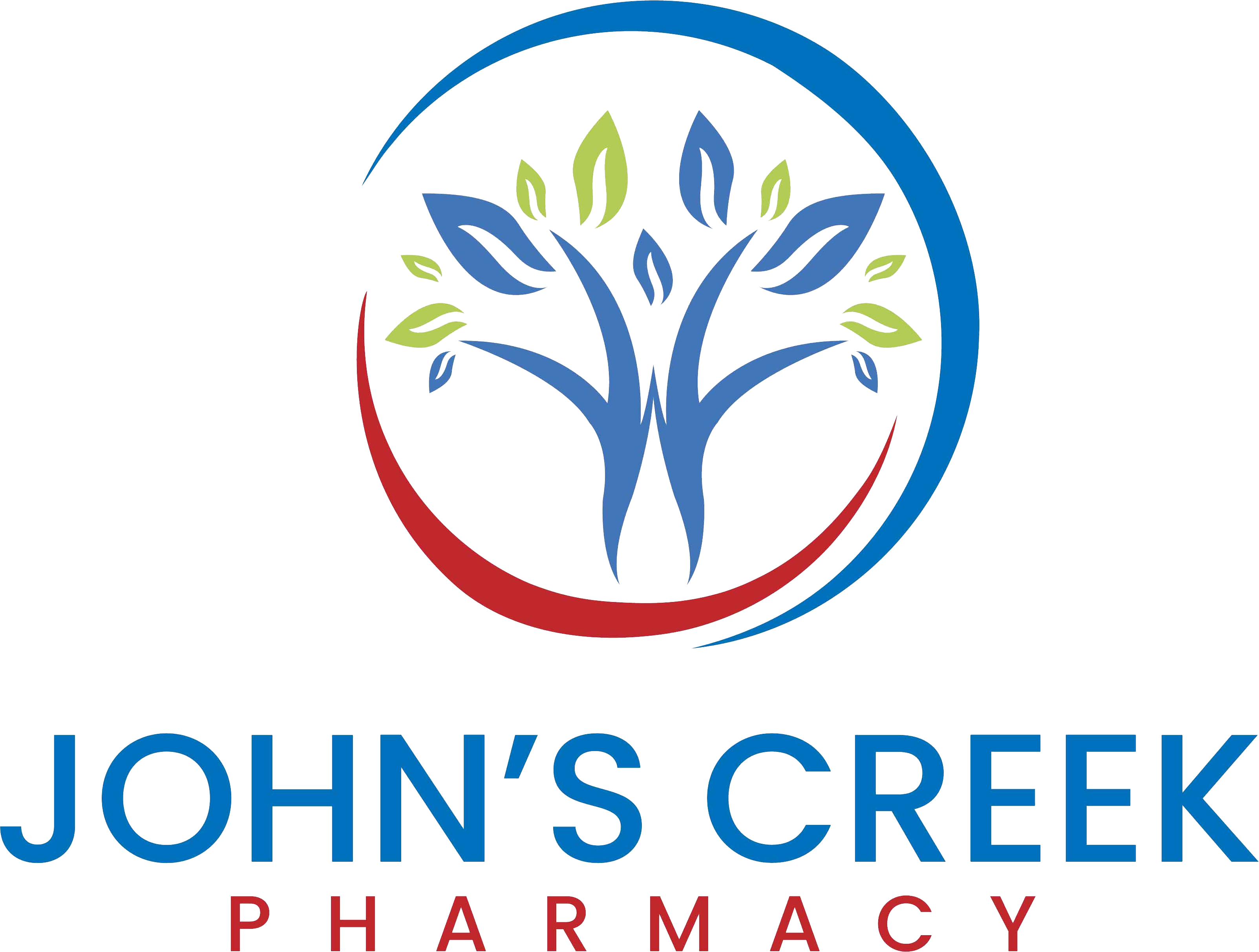Nutrient Depletion Counseling

Nutrient Depletion Counseling at John's Creek Pharmacy
Here at John's Creek Pharmacy, our goal is to ensure you are receiving the maximum benefit from your medications. Many medications, while effective at treating specific conditions, can deplete essential vitamins and minerals your body needs to function optimally. Our nutrient depletion counseling services are designed to help you identify and manage these risks. We work closely with you to determine if your current medications, hormonal changes, exercise routine, or just normal aging, are affecting your nutrient levels and provide personalized recommendations to restore balance.
Are you experiencing side effects from a medication that you are currently taking?
Are you taking a medication that depletes other key nutrients?
Are you looking for ways to boost your overall immunity, health, and wellness?
Are you having trouble sleeping on your medication?
Do you lack energy on a daily basis?
If you answered yes to any of these questions, you may benefit from nutrient depletion counseling. By offering guidance on supplements, diet adjustments, and overall wellness strategies, we ensure you stay healthy and feel your best while taking your prescribed medications. Your well-being is our priority, and we’re here to support you every step of the way.

Nutrient Depletion and Maintenance Medications
While medications are a great way to help you manage your symptoms, they can also deplete your body of vital nutrients. Fortunately, our expert pharmacy staff is trained in identifying drug-induced nutrient depletion and providing medication counseling to help your medication work with you, not against you.
Here are some common medications that could be diminishing the nutrients in your body:
Statins (Cholesterol-Lowering Medications)
- Examples: Atorvastatin (Lipitor), Simvastatin (Zocor)
- Nutrient Depletion: Coenzyme Q10 (CoQ10)
Acid-Blocking Medications (Proton Pump Inhibitors & H2 Blockers)
- Examples: Omeprazole (Prilosec), Pantoprazole (Protonix), Ranitidine (Zantac)
- Nutrient Depletion: Vitamin B12, Magnesium, Calcium, Iron
Diuretics (Blood Pressure & Heart Medications)
- Examples: Furosemide (Lasix), Hydrochlorothiazide (HCTZ)
- Nutrient Depletion: Potassium, Magnesium, Calcium, Zinc
Oral Contraceptives (Birth Control Pills)
- Examples: Ethinyl estradiol combinations (Yaz, Ortho Tri-Cyclen)
- Nutrient Depletion: Vitamin B6, Folate, Magnesium, Zinc
Metformin (Diabetes Medication)
- Nutrient Depletion: Vitamin B12, Folate
Corticosteroids (Anti-Inflammatory Medications)
- Examples: Prednisone, Dexamethasone
- Nutrient Depletion: Calcium, Vitamin D, Magnesium, Potassium
Antidepressants
- Examples: SSRIs like Fluoxetine (Prozac), Sertraline (Zoloft)
- Nutrient Depletion: Sodium, CoQ10, B vitamins
Anti-Seizure Medications
- Examples: Phenytoin (Dilantin), Carbamazepine (Tegretol)
- Nutrient Depletion: Vitamin D, Calcium, Folate
Beta Blockers (Blood Pressure & Heart Medications)
- Examples: Metoprolol (Lopressor), Propranolol (Inderal)
- Nutrient Depletion: CoQ10

Exercise and Its Effects on Your Body’s Nutrients
Exercise is vital for overall health, but it also increases the body’s demand for essential nutrients. During physical activity, various physiological processes require more vitamins, minerals, and other nutrients. Here’s how exercise can deplete your body of nutrients:
Increased Nutrient Loss Through Sweat
- Electrolytes: Sweating during exercise leads to the loss of key electrolytes like sodium, potassium, calcium, and magnesium. These minerals are crucial for maintaining fluid balance, muscle function, and nerve signaling.
- Water-Soluble Vitamins: Sweat can also lead to the loss of water-soluble vitamins such as B vitamins and vitamin C, which are essential for energy production and immune function.
Enhanced Metabolic Demand
- B Vitamins: During exercise, your body burns more energy, requiring increased levels of B vitamins (like B1, B2, B6, and B12) to convert food into energy. These vitamins are quickly depleted as they are needed for carbohydrate, fat, and protein metabolism.
- Iron and Zinc: These minerals are vital for oxygen transport and immune support, and intense exercise can deplete them faster due to increased demands on the body.
Muscle Recovery and Repair
- Amino Acids: Exercise breaks down muscle tissues, requiring amino acids (the building blocks of protein) for recovery. If protein intake or absorption isn’t sufficient, this can lead to muscle fatigue or delayed recovery.
- Magnesium and Calcium: These are critical for muscle contraction and relaxation. Consistent physical activity can deplete these minerals, impacting muscle function and increasing the risk of cramps.
Oxidative Stress and Free Radical Damage
- Antioxidants (Vitamin C, Vitamin E, Selenium): Intense exercise increases oxidative stress, leading to a higher production of free radicals. Antioxidants are used to neutralize these free radicals, and regular exercise can deplete these stores.
Bone and Joint Health
- Calcium and Vitamin D: Weight-bearing exercises and high-impact activities can put stress on bones and joints, increasing the need for calcium and vitamin D for bone health and repair.
Hydration and Nutrient Absorption
- Water and Electrolytes: Dehydration due to exercise can impair nutrient absorption and overall bodily function. Maintaining proper hydration is essential for ensuring nutrients are effectively delivered to cells and tissues.

Hormonal Changes and Their Impacts on the Nutrients in Your Body
Hormonal changes play a significant role in your body’s ability to absorb, use, and retain essential nutrients. These fluctuations can occur due to various life stages, stress, medications, or health conditions, leading to nutrient imbalances or deficiencies. Here’s how hormonal changes impact your body’s nutrient levels:
Estrogen and Bone Health
Calcium and Vitamin D: Estrogen plays a key role in maintaining bone density. During menopause or other times of low estrogen, calcium and vitamin D levels can decrease, leading to weakened bones and a higher risk of osteoporosis.
- Magnesium: Hormonal shifts can also reduce magnesium levels, which are essential for calcium absorption and bone health.
Insulin and Blood Sugar Regulation
Chromium and Magnesium: Insulin is responsible for regulating blood sugar levels. Insulin resistance or diabetes can deplete chromium and magnesium, both of which are essential for maintaining healthy blood sugar levels and supporting cellular energy.
- Vitamin D: Low vitamin D levels can exacerbate insulin resistance, impacting glucose metabolism and overall health.
Thyroid Hormones and Metabolism
Iodine and Selenium: The thyroid gland relies on adequate iodine and selenium to produce thyroid hormones. Imbalances in thyroid hormones (like in hypothyroidism or hyperthyroidism) can lead to deficiencies, affecting energy levels, weight, and overall metabolic function.
- Vitamin B12 and Zinc: Thyroid imbalances can also impact the body’s ability to absorb B vitamins and zinc, which are critical for energy production and immune function.
Cortisol and Stress Response
Vitamin C and B Vitamins: Elevated cortisol levels, often triggered by chronic stress, can quickly deplete vitamin C and B vitamins. These nutrients are vital for adrenal function and managing the body’s stress response.
- Magnesium: High cortisol levels increase magnesium excretion, leading to symptoms like anxiety, fatigue, and muscle tension.
Progesterone and Mood Regulation
Vitamin B6: Progesterone, crucial for mood regulation, works in tandem with vitamin B6. Fluctuations in progesterone during menstrual cycles, pregnancy, or menopause can lower B6 levels, impacting mood stability and energy.
- Iron: Hormonal changes associated with heavy periods can deplete iron stores, leading to anemia, fatigue, and weakened immune function.
Testosterone and Muscle Health
Protein and Zinc: Testosterone is critical for muscle mass and strength. Low testosterone can reduce protein synthesis and zinc levels, affecting muscle health, recovery, and energy.
Managing Nutrient Levels During Hormonal Changes
Recognizing the connection between hormonal changes and nutrient levels is key to maintaining overall health. Managing nutrient levels during hormonal changes is essential to maintaining overall well-being, as fluctuations in hormones can directly impact how your body absorbs and uses vital nutrients. At John’s Creek Pharmacy, we offer nutrient depletion counseling to help you navigate these shifts and provide personalized supplement recommendations to restore balance and support your body’s needs during hormonal transitions.
Vitamins and Supplements Offered at John’s Creek Pharmacy

We carry an extensive line of vitamins & supplements that are clinically-tested & hand-picked by our team:
- Probiotics
- Vitamin B
- Vitamin C
- Vitamin D
- Zinc
- Elderberry
- CoQ10
- Fish Oil - Omega 3 Fatty Acids
- Melatonin
- Magnesium
- Multi Vitamins
- Calcium
- Iron
- And more!
Our pharmacists are also specially trained to recommend vitamins and supplements that may help offset drug induced nutrient depletions and expand your wellness.
With our Nutrient Depletion program, our knowledgeable staff will evaluate your medications and lifestyle, answer any questions you may have, and discuss suggested diet changes, recommend vitamins and supplements, and more.
If you feel like nutrient depletion counseling is right for you, call us to schedule a personal consultation with one of our skilled staff members today. You can also shop our wide selection of Professional Supplements Here.
At John’s Creek Pharmacy in Suwanee, GA, our expert pharmacists are here to help you maintain optimal health by addressing potential nutrient depletions caused by your medications, exercise regimens, or hormonal changes. With our personalized nutrient depletion counseling, we’ll work with you to identify any deficiencies and recommend the right supplements or dietary changes to keep you feeling your best. Don’t let nutrient imbalances affect your health— get the expert guidance you need today. Call us at (678) 417-0122 to schedule your consultation and take the next step toward better wellness!
